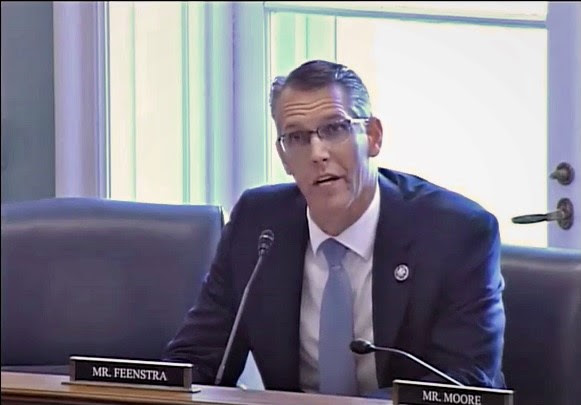Feenstra Helps Introduce Legislation to Make 2017 Tax Cuts and Jobs Act Permanent

Today, U.S. Rep. Randy Feenstra (R-Hull) helped introduce legislation – the TCJA Permanency Act – led by U.S. Rep. Vern Buchanan (R-FL) to make the Tax Cuts and Jobs Act of 2017 (TCJA) permanent and deliver tax relief to Iowa families, farmers, small businesses, and rural main streets. Feenstra was a cosponsor of this legislation in the 117th Congress as well.
“The 2017 Tax Cuts and Jobs Act was an important victory for Iowa families, farmers, small businesses, and our economy. Between record inflation and economic uncertainty, hardworking Americans deserve to keep more of their hard-earned money through a simpler, more efficient tax code,” said Rep. Feenstra. “As a longtime advocate for commonsense tax reform, we cannot allow these tax cuts to expire due to congressional inaction. That’s why I’m working with my colleagues on the Ways and Means Committee to quickly pass the TCJA Permanency Act and ensure that Iowans continue to benefit from these well-deserved tax cuts.”
Without congressional approval, 23 different provisions of the 2017 Tax Cuts and Jobs Act would expire after 2025.
More specifically, this legislation would:
- Permanently lower tax rates for individuals and families, allowing Americans at every income level to keep more of their hard-earned money.
- Preserve the 20% deduction for small businesses, ensuring taxes will not increase on Main Street businesses, which employ nearly half of the U.S. workforce.
- Maintain the higher standard deduction, increasing the amount of tax-free income a middle-class family can earn.
- Lock in the doubled child tax credit, further encouraging workforce participation.
- Permanently simplify the tax-filing process, allowing 9 out of 10 Americans to get the full benefit of tax deductions without the headache of tracking receipts or itemizing.
According to the Tax Foundation, making TCJA’s individual tax provisions permanent will lead to 2.2% higher GDP in the long-term.




